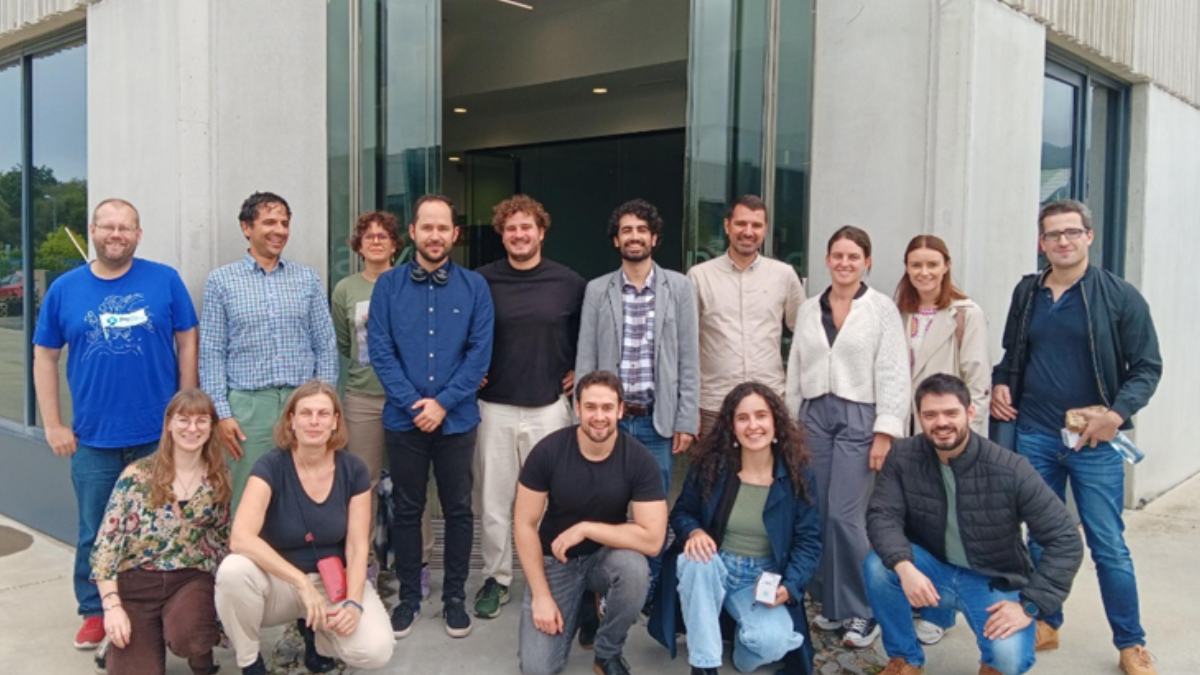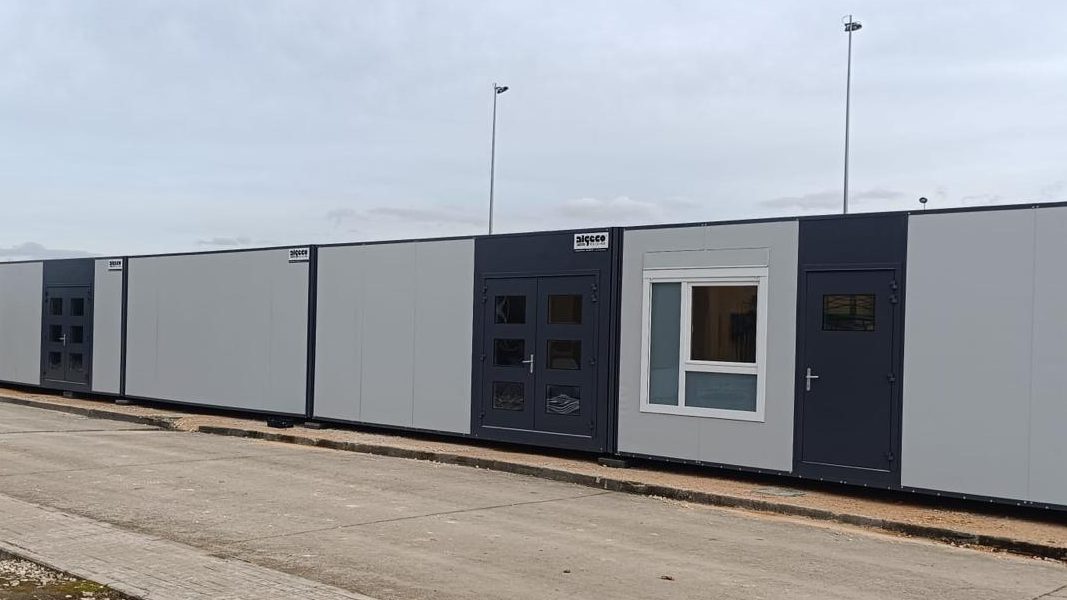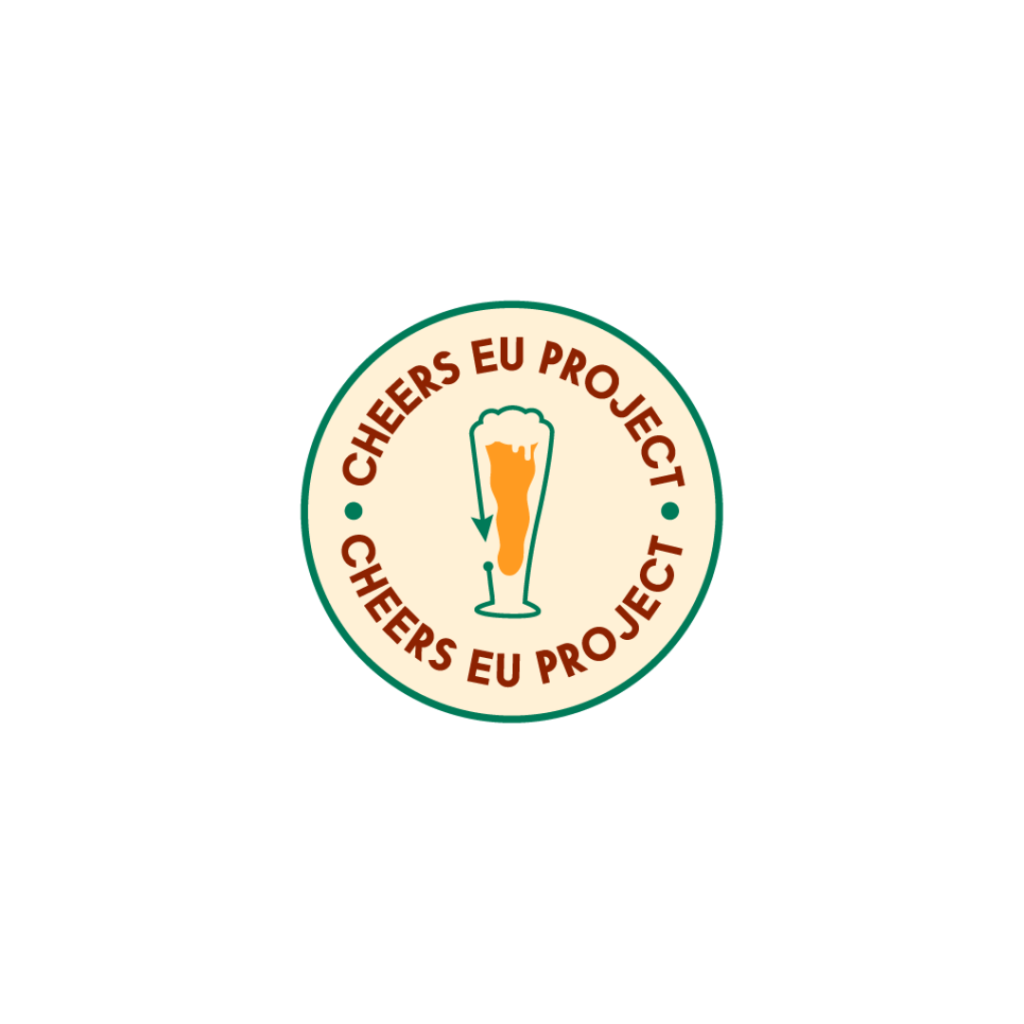The EU-funded project is developing two different production platforms to transform side-streams of the beer production process into five innovative products. After two years been focused on developing innovative solutions to reduce the environmental impact of brewing, CHEERS project has annunced its first results.

The CHEERS insect plant is up and running!
On 26 November, the construction of the pilot platform began at the facilities of the Mahou-San Miguel brewery, marking the start of one of the key activities of the project.
Experimental processes for the valorisation of by-products from the brewing industry will take place in this plant by the company Proteinsecta. Firstly, the Tenebrio molitor beetle will be fed with a formulation based on bagasse and brewer’s yeast, obtaining a large amount of insect biomass through its larvae, known as mealworms. The culmination of this value chain will be the extraction of protein for the subsequent creation of 200 litres of high-protein beverages, the second phase of our participation in the project.
Proteinsecta will receive the by-products from Mahou-San Miguel, the project coordinator and direct supplier. The pilot plant will have a production capacity of 13.5 tonnes per year of insect biomass through this biorefinery approach. In addition, the results obtained will be used for the creation and transmission of scientific and industrial knowledge on an international scale.
This premise would be an innovative milestone in the circular economy of the agri-food industry, as it proposes an alternative way of recovering the remains and by-products derived from brewing and other processes. The ultimate goal of CHEERS is to promote the reduction of both resources and the environmental impact of the entire production process of the brewing industry while at the same time strengthening different value chains that will give rise to five new industrial products.
Asetaga colaborates as a consultant in this project funded by the European Union through the Horizon Europe research and innovation programme and will run until August 2026.

This project has received funding from the European Union’s Horizon Europe research and innovation programme under Grant Agreement No. 101060814.
¡Ya está en marcha la planta de insectos de CHEERS!
El día 26 de noviembre comenzó la construcción de la plataforma piloto en las instalaciones de la empresa cervecera Mahou-San Miguel, dando comienzo a una de las actividades clave del proyecto.
En esta planta tendrán lugar los procesos experimentales de valorización de los subproductos de la industria cervecera por parte de Proteinsecta. Esta consultoría de granja de insectos alimentará al escarabajo Tenebrio molitor con una formulación basada en bagazo y levadura de cerveza. De esta forma, obtendrá una gran cantidad de biomasa de insectos a través de sus larvas, conocidas como gusanos de la harina. El culmen de esta cadena de valor será la extracción de proteína para la posterior creación de 200 litros de bebidas con alto contenido proteico, segunda fase de nuestra participación en el proyecto.
Proteinsecta recibirá los subproductos de Mahou-San Miguel, coordinador del proyecto y proveedor directo. La planta piloto tendrá una capacidad productiva de 13.5 toneladas anuales de biomasa de insectos mediante este enfoque de biorrefinería. Además, los resultados obtenidos servirán para la creación y transmisión de conocimiento científico e industrial a escala internacional.
Esta premisa supondría un hito innovador en la economía circular de la industria agroalimentaria, ya que propone una vía alternativa de valorización de los restos y subproductos derivados de la elaboración de cerveza y otros procesos. El objetivo final de CHEERS es fomentar la reducción tanto de recursos, como del impacto ambiental de todo el proceso de producción de la industria cervecera al mismo tiempo que se afianzan distintas cadenas de valor que darán lugar a cinco nuevos productos industriales.
Asetaga colabora como asesor en este proyecto financiado por la Unión Europea a través del programa de investigación e innovación Horizonte Europa y estará en activo hasta agosto de 2026.



